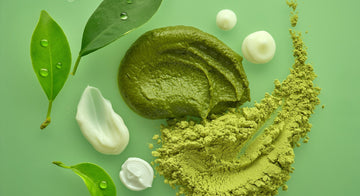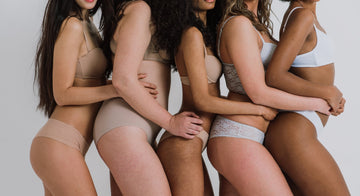NAPPY Movement

Born from the combination of the terms "naturally" and "happy," the Nappy Movement is gaining more and more traction worldwide, advocating for the freedom of African people to flaunt their natural hair.
Originally, the term " nappy " had a negative connotation. It referred to the cotton ball used to stuff dolls, and therefore was used disparagingly towards people of African descent to emphasize their connection to slavery.
Today, however, its use has been completely reversed and has taken on a positive meaning.
But how did this change come about?
The type of hair that we call "afro," because it is common among people born in Sub-Saharan Africa, requires specific care, different from that dedicated to straight hair or to the types of hair that are normally more widespread in the West.
Among the many traumatic consequences of the slave trade was the loss of the special relationship that African people had with their hair, which was used as an element of cultural distinction.
The long, flowing hair of Westerners became the new standard of beauty for Black people as well, especially for women.
Starting in the 1960s, a claim for human rights and equality began to be asserted, even through one's natural image, which therefore contrasted with the idealization of white beauty standards.
Starting to show off one's natural hair became a specific political statement by black people, until it even became a trend in the seventies.
White people began to resort to perms and treatments that recreated the "Afro curl," making it a fashion trend and thus contributing to the depoliticization of the look.
We then arrive at the 2000s, when the Nappy Movement began to establish itself decisively, first in the United States and then in Europe.
The spread of the Internet and social media has greatly contributed to the awareness of this issue, fueling debates and leading to the birth of the Natural Hair Movement with the intention of reclaiming the beauty of natural, curly, afro hair.
This movement decided to reclaim the term "nappy" to give it a new meaning, eliminating its previous derogatory connotation and making it, on the contrary, a way to assert the importance and beauty of one's origins.
In fact, it is the first movement in history to bring to the attention of the general public the relationship between racial discrimination and hair in relation to people with afro hair.
Gradually, its popularity is growing, even in Italy, and today many celebrities of African origin are testimonials for it, choosing to wear their hair naturally, contributing to the spread of the movement and consolidating the beauty standard of afro hair.
The Nappy Movement is no longer just about hairstyles; it has become a philosophy of life, an invitation to break down aesthetic preconceptions and reclaim black pride. It encourages people not to change their image to chase standards imposed by others, but to accept themselves and feel proud of their origins.





